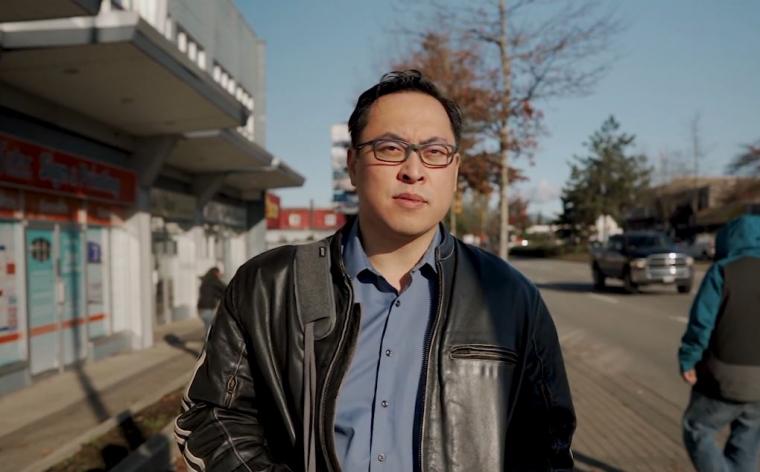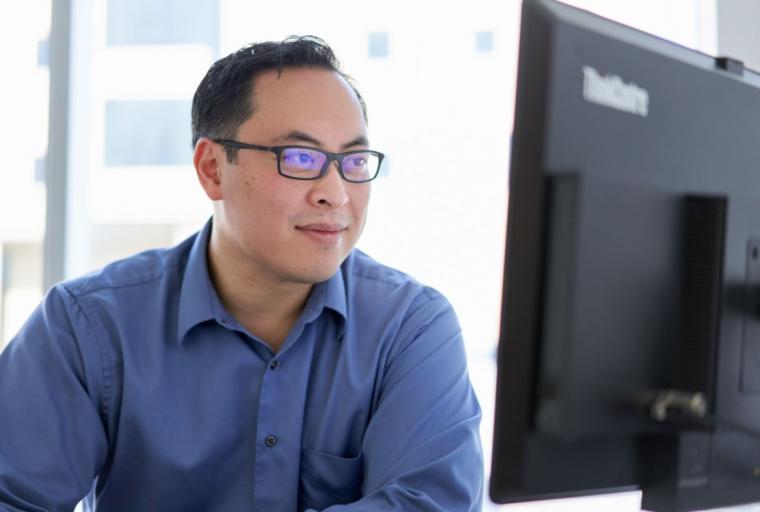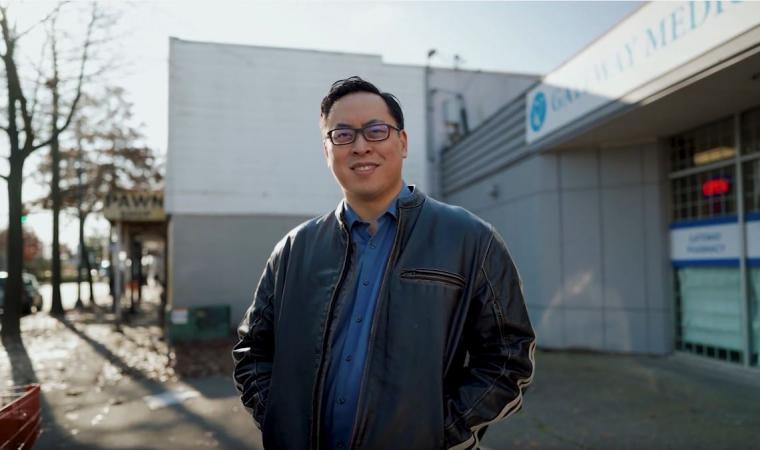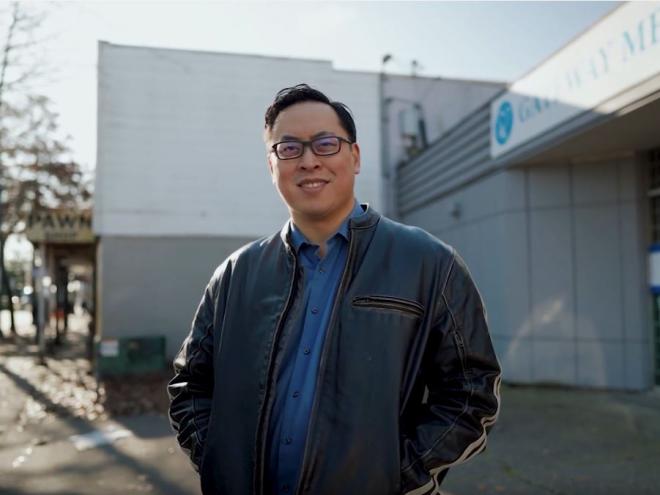Dr Lawrence Yang knew he wanted to be a doctor by the time he was 12 years old. His father, who was trained in Asia and did his residency at Dalhousie University, was a family physician in Surrey. Young Lawrence wanted to follow the same path: “It seemed like a really good job that I ought to try”.
Along the way, he came to terms with a formidable foe, an internal one that proved hard to manage. “I had quite a bit of anxiety when I was growing up. Learning to live and function with anxiety - I really think that shaped much of how I practice medicine, I’m drawn to serve those who suffer with mental health challenges.”
“I was never trained to offload others’ emotions in a healthy way”
Challenges with anxiety only grew once he joined his father’s practice in Whalley, treating mainly low-income families, the homeless and the street-entrenched population. He dealt with complex cases - mental health issues combined with multiple other chronic diseases. While he was drawn to this kind of practice, his own issues with anxiety worsened.

A big problem, says Dr Yang, is that unreasonable expectations are set when physicians are at the start of their careers. As a resident physician, he had been given the ideal that he was to develop himself into that “singular hero” that would know everything the first time and manage patient’s medical issues perfectly every time. Now he acknowledges that this ideal was in application completely impractical and unattainable.”
“I wanted to provide better care to my patients, but our system couldn’t seem to get there. There are so many people with significant psychological trauma, and when they encounter the health system, they seem to be re-traumatized over and over.
“I learned I was not alone….in carrying the pressures of other people’s emotions”
Dr Yang knew he needed help. He first turned to the Practice Support Program (PSP), which connected him with hundreds of his colleagues around the province. “I learned that I was not alone in my frustrations…I really burnt myself out running around carrying the pressures of other people’s emotions, thinking illogically that I could change a system without first developing a systems perspective.”

Understanding that he was not alone was the first step. What Dr Yang describes as the “monumental” turning point was his introduction to the Physician Quality Improvement (PQI) program, an initiative of the Specialists Services Committee (SSC), which is a partnership of Doctors of BC and the BC government.
By working toward quality improvement in a supportive environment with colleagues and health authority partners, he felt empowered to make changes within his own practice - in how he practices team-based care at the hospital, and in how he engages colleagues at the Division of Family Practice tables in the community. “I took to the QI championed methods of managing the “people side of change” like a fish to water,” says Dr Yang. “I find joy in empowering local GP colleagues at my Division to lead change in our community. In the past year, I’ve been lucky to be a part of system redesign in care of the frail elderly, in GP access to specialist advice, and in many other projects.”
How do we drive change “if we have no idea what we are really doing in the first place?”
Through Dr Yang’s work with the division, he learned about the Health Data Coalition (HDC), the next step in his quality improvement journey. HDC provided a valuable tool to understand how his practice was doing from a ‘big picture’ perspective.
“HDC really helps us to reflect on various metrics within our practice to see how we’re doing compared to various virtually cohorted clinical populations - either our anonymized GP practices in our area, or province wide. HDC provides a lens that gives clinical self-awareness and a new perspective of measurement for our eyes only (sharing is optional). How can we make coordinated strategic meaningful improvements if we have no idea how we are really doing in the first place?

“What I especially like about the Health Data Coalition is that it’s run by primary care physicians who really care about public health, and they are protecting our communities, acting as a bastion of responsible data stewardship.”
Coming full circle: “My wellness is intimately tied into the wellness of the community”
The focus on the science of improvement helped bring Dr Yang back to resolve a key personal and professional challenge – focusing on his own wellness, while supporting his patients and helping to build capacity within the healthcare system. “It feels like everything’s coming full circle - it’s all connected.”
“I realized that that as a family doctor we need to reach out and learn the system that we work in; learn the resources in the community; and we need to ask for help as soon as possible once we feel overwhelmed…
“I learned that my wellness is intimately tied into the wellness of the community. We all should prioritize our own wellness. After that, we work on building efficient, compassionate workplace cultures - or we cannot expect our patients to experience quality care. A healthy culture is one that fosters connection, a bias towards localized agency, and coordinated innovation in every team member of the clinic/hospital maximizing opportunities to provide patients with care that really matters to them.”
This far along on his personal and professional journey, Dr Yang has accepted that we have ideals that we fall short of every day, and that’s OK.

He feels his greatest satisfaction in the small ‘wins’, the short intimate interactions with patients where he feels he has had a positive impact on their lives. “Where the patients are empowered, they’ve made a turn in their trajectory, where they smile at you and tell you, I think I know what to do now, I believe I will improve, I hope not to see you more than once this next year… Getting people to trust the world again, their own bodies, and their own capacity for self-improvement, healing and wellness.
Ultimately, says Dr Yang, “the key for physicians is to take a deep breath, reach out, ask for help, support each other, and figure out how we can do this better together. That is the only way we can move forward and serve our communities in a redesigned evolving medical system that we are proud to have our children and grandchildren grow old in.”
Doctors of BC is interested in profiling physicians you know who are making a positive difference for their patients and in their communities. Drop us a line at communications@doctorsofbc.ca (link sends e-mail)with your suggestions.
